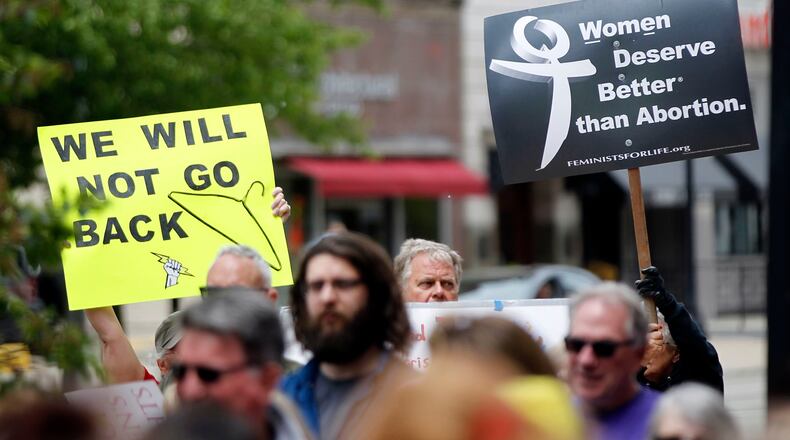The agencies sent out a press release that praised the decision by by Hamilton County Court of Common Pleas Judge Alison Hatheway, which found that the law violates the clinics and patients’ rights to due process and equal protection.
Senate Bill 27 had been signed into law by Gov. Mike DeWine in December 2020.
“No longer will the tiny bodies of babies whose lives have been tragically taken by abortion be treated like trash. In Ohio, we respect life and we bury our dead,” Mike Gonidakis, president of Ohio Right to Life said at the time of its passage.
It makes it a first-degree misdemeanor for abortion clinics to dispose of fetal remains through any means except cremation or interment.
In April 2021, the law was blocked from taking into effect, because Hatheway found Ohio Department of Health hadn’t provide the rules and forms required by the law, putting off enforcement until Feb. 8. Now the law is paused from being enforced until the final judgement on the case.
In a statement on behalf of Women’s Med Center Dayton and other Ohio abortion clinics and advocacy groups, the organizations said the ruling “reaffirms what we already know to be true: aggressive and cruel regulations like SB27 serve no other purpose than to impose severe burdens on abortion patients and providers, and to shame and stigmatize patients seeking essential health care.”
The challenge to the law comes after years of new state laws adding new abortion hurdles and clinic requirements.
Another new state law, Senate Bill 157, is set to go into effect March 21 and threatens to close Dayton’s only abortion clinic, Women’s Med Center.
Women’s Med is open under a waiver to a state licensing requirement. The new law means clinics can’t have that waiver paperwork signed by any doctor connected to a public institution, which rules out the physicians now signed onto the Women’s Med waiver.
About the Author

